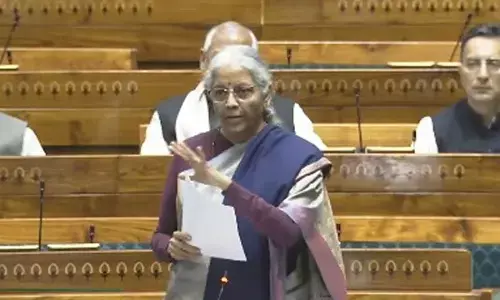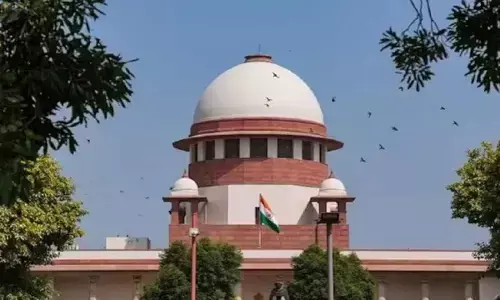Doctors call for action against growing burden of heart-related diseases
Share :

Lifestyle factors, including neglect of hypertension, high-stress levels, tobacco, alcohol, unhealthy diets, and a surge in obesity are the key factors behind the growing burden of heart-related diseases in the country, said health experts ahead of the World Heart Day on September 29, calling for immediate action.
New Delhi: Lifestyle factors, including neglect of hypertension, high-stress levels, tobacco, alcohol, unhealthy diets, and a surge in obesity are the key factors behind the growing burden of heart-related diseases in the country, said health experts ahead of the World Heart Day on September 29, calling for immediate action.
World Heart Day is annually observed on September 29 to raise awareness of diseases related to the heart, and also to work on solutions to mitigate it.
Heart attacks have recently been escalating in India, particularly among the youth, raising significant concerns. Heart failure, a condition where the heart cannot pump blood efficiently, also has become a leading cause of morbidity and mortality in India.
With lifestyle changes and early detection, individuals can reduce their risk and lead healthier lives. The medical community urges everyone to take heart health seriously and prioritise preventive measures, the heath experts said.
"The most significant contributing factors to heart failure among youth include long-standing ischemic heart disease, valvular heart disease, diabetes mellitus, and hypertension," Saurabh Chopra, Consultant, Cardiology at Narayana Superspeciality Hospital Gurugram, told IANS.
"There is an urgent need to make youth aware of underlying conditions that might spike and result in heart attack and failure, hence they should go for regular checkups and make lifestyle modifications as preventive steps," he added.
In its recent report, the World Health Organization (WHO) underscored the grave repercussions of hypertension. The report shows an estimated 188.3 million adults aged 30-79 years live with hypertension in India.
High blood pressure, medically referred to as hypertension, earns its ominous nickname as the "silent assassin" due to its stealthy progression, often evading detection until it unleashes grave health ramifications, such as heart attacks and heart failure.
Early detection of heart ailments is vital and crucial for survival, said Dr Amar Singhal, Senior Consultant, Interventional Cardiologist, Sri Balaji Action Medical Institute.
"The symptoms can include persistent fatigue, shortness of breath, swollen legs, and rapid or irregular heartbeat. Ignoring these symptoms can lead to delayed treatment and worsened outcomes. A young population, under the impression that they are fit and do some workouts, sometimes miss the underlying symptoms that can be fatal at a later stage," he told IANS.
The doctors recommended young people to do annual heart health check-ups, particularly check their cholesterol levels and take preventive steps to avoid clogging their heart arteries.
It is “even more important for a subset of people whose parents themselves had heart problems before they had turned old -- typically, father below 55 years and mother below 45 years,” said Ranjan Modi, Senior Consultant - Interventional Cardiology at Sarvodaya Hospital, Faridabad.
It is because they are likely to have very high chances of excessive levels of cholesterol in their bloodstream, the doctor explained.
“It is recommended that they should start getting their cholesterol checkup done once a year typically from 20 years of age,” Modi said
“Maintaining a healthy lifestyle through regular exercise, a balanced diet, and stress management can significantly reduce the risk of heart failure,” said Dr Samir Kubba, Director - Cardiology, Dharamshila Narayana Hospital.













